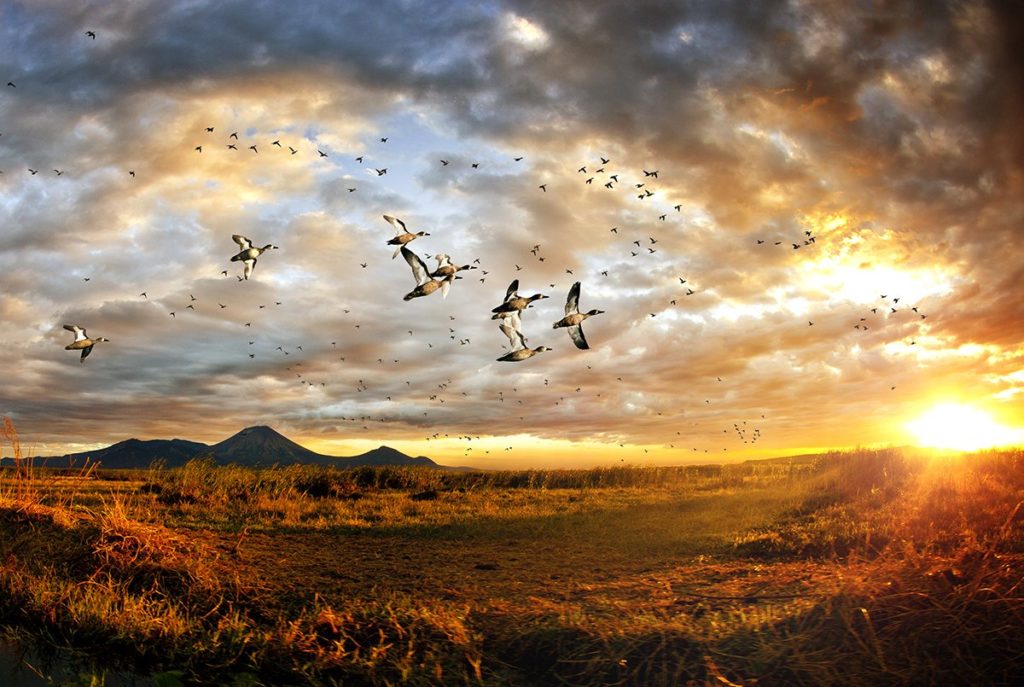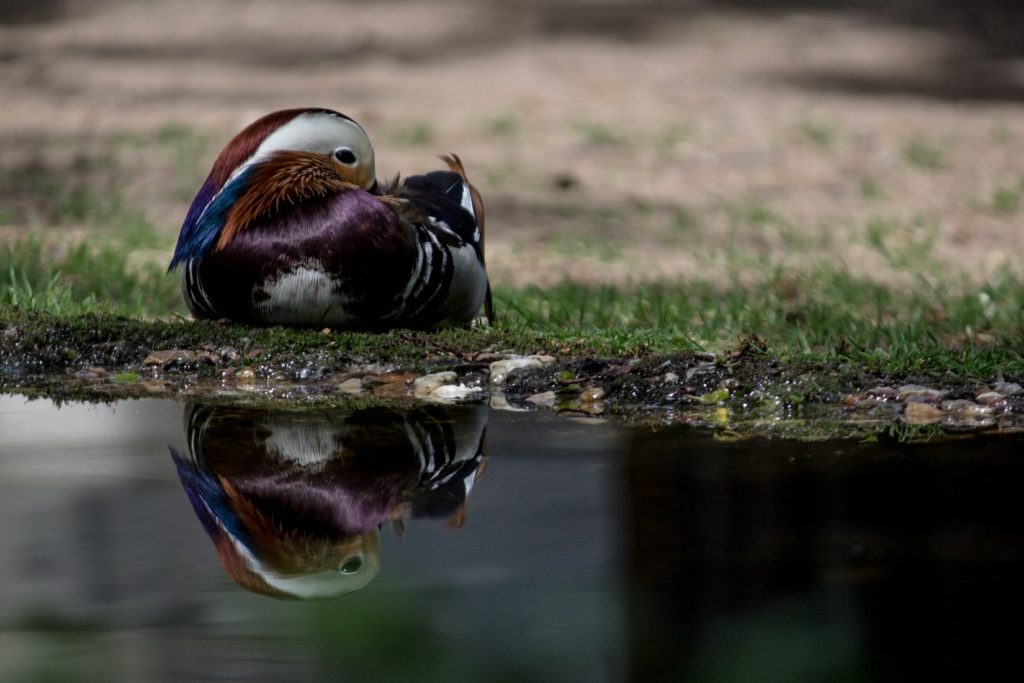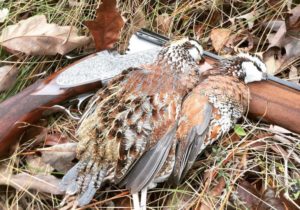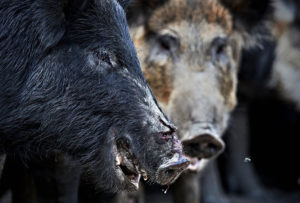A Beginners Guide To Duck Hunting
Ever wanted to go duck hunting, but have no idea where or how to go about it? You may have seen a TV show like Meateater and are now fascinated about giving it a try? This is a complete guide for beginners, the purpose of which is simply to introduce the basics of this fine craft!
Waterfowl hunting has a special charm. The thought of where they may have come from, the uncertainty of the outcome, and the work required to succeed make it one of the most authentic and pure forms of hunting. Another attraction is the variety of different species that one can encounter. An ideal hunt for the naturalist hunter.
Duck hunting for a beginner can be a bit overwhelming between the regulations of each state and the amount of equipment required. To understand how to place decoys, or to recognize the variety of birds that roam and select the one to hunt, are doubts that every hunter raised in his early days, and of course the best locations to hunt!
If you are willing to learn, hunters will be happy to teach you the tricks of the trade and have learned over the years to have a successful duck hunt. But if you don’t know anyone who hunts and you’re interested in getting started in waterfowl hunting, here are the basics to get you off to a good start.

What Equipment Do I Need For Duck Hunting?
Having the right equipment is a vital component in ensuring duck hunting success.
Duck decoys: Many duck hunters scatter decoys around their shooting grounds to attract ducks. Most waterfowl hunters only hunt in the morning, then let the lakes and fields rest in the afternoon. Because of this, decoy placement is done in total darkness before the morning hunt. Headlamps that are placed on a headband or attached to a hat can give you good illumination while your hands are free.
Some decoys with battery-operated wings simulate ducks landing. The basic strategy when setting up a decoy display is to leave a space to the front, left and right of your shooting position for the ducks to land. The area should be close enough to be within shotgun range.
A dozen decoys can be used to get you started. You can decorate them in a “U” or “V” shape, which are the most effective markings for attracting waterfowl, so you can get a good shot. While you’re at it, place the decoys downwind away from your face. Since ducks prefer to land into the wind, it is advisable to place the decoy so that the wind is at your back.
Angler’s boots: Your hunt will take place on the water, some places swampy and boggy and others just plain dull and cold. So do yourself a favor and bring a pair of waders to your hunt, and well insulated ones at that. This will keep you warm, ensure your safety, and most importantly, give you a more comfortable trip.
Waders are also the best way to make sure that dirty water and mud don’t get on your feet. To avoid hip waders, chest waders are best for deep water, although for shallow water as well, chest waders will keep your body warm and dry.
It is very necessary because it is an item made in the same material as the boots, which allows you to cross the river from side to side without getting wet. This way, you can get closer to the prey, as it covers you from your feet to the top of your chest. In addition, it prevents you from slipping and falling into the water since, as you might expect, it is a non-slip garment.
Weapons: Choosing the ideal weapon for duck hunting depends on the preferences of each hunter. In most places intended for duck hunting, only one shotgun is allowed to be carried. For this reason, you should choose the one that best suits your needs. It must be reliable and safe. Choose the gun you are most comfortable with.
A 12-gauge shotgun is the rule of thumb for waterfowlers. Perhaps some people like semi-automatics better and others like pump guns. In the first case it’s simple because all we have to do is pull the trigger and shoot. In the case of double-barreled shotguns, they are rarely used for waterfowl hunting because they have the disadvantage of having two cartridges.
The advantage of pumps is that even in extreme conditions, they almost never fail. As mentioned, while 12-gauge is the general choice for waterfowl hunters, 20-gauge guns and 10-gauge shotguns are still used by goose specialists.
Ammunition: Grooved guns for duck hunting are practically not used, as the duck strikes most often, and only shotguns are suitable for this. But there are cases when hunters hunt a duck by shooting it in ponds at distances of 50 meters or more. It is in such cases that the duck needs to be shot from rifled guns by choosing the smallest caliber. We recommend that you read
And so, how to shoot a duck with a rifled gun, it is necessary to consider several options, or rather the calibers of a rifled gun:
5.6 (small stuff): the best option for duck hunting. Cartridge caliber 5.6. mm has a subsonic velocity of the bullet, which allows you not to break the duck, as do cartridges with a high velocity bullet. The 5.6 mm caliber gun is weak in energy, but since the duck is not strong in the wound, the duck can be shot with small caliber guns even at a distance of more than a hundred meters.
5.56×45: a gun of a given caliber or similar has a drawback for shooting a duck and it consists in the high velocity of the bullet. At velocities in excess of 900 m/s, a bullet entering the duck’s body produces an explosive effect that causes such damage that sometimes nothing is left except the legs and head. Consequently, after such a hit, all culinary interest in the duck is lost. To prevent this from happening, it is necessary to use projectile bullets, shoot a duck at a distance of more than 100 meters and have a gun with a rifling pitch in the barrel channel of not more than 230 mm.
7.62×39: an intermediate automatic cartridge is not used for shooting a duck, as it is believed to have too high bullet energy. In general, this cartridge is not recommended for use on poultry and ungulate animals weighing more than 50-70 kg, but often hunters use it as a universal cartridge for hunting various types of animals. The beauty of this caliber is that at a relatively low bullet velocity of approximately 740 m / s it does not cause devastating explosive effects when it enters a bird, including a duck, but only makes small through holes, as if piercing a carcass.
7.62×54: rifle cartridges are not used for shooting ducks, as they have a high bullet velocity and, in most cases, the gun is fired with a barrel pitch of 320 or more, which makes the bullet less stable when an animal enters the carcass. Bullet instability allows it to inflict large lacerations and put the beast in place. In addition, guns of this caliber have a high initial bullet velocity, which only enhances the explosive effect when a duck enters the carcass.
Camouflage: Duck hunting is like any other type of animal hunting. The only difference is that the former takes place in a body of water. That being said, you will need to bring some camouflage clothing and if possible, some face paint as well. What we are saying is that you should try every possible way to hide so as not to scare the birds.
If for example your idea is to hunt in swamps, a brown grass-like pattern is best. If you are hunting in wooded areas, a bark or leafy pattern may be the way to go. Dressing in layers is recommended. For example, a long-sleeved shirt under a waterproof parka system to keep you warm and dry. By dressing in layers, it allows you to take them off a little at a time if the weather changes.
Keeping your hands warm and dry during a duck hunt is no easy task. On cold, snowy mornings, wet hands can mean an early trip home. A hat or visor also comes in handy, especially on those sunny or snowy days to combat glare. Use a face mask or face paint to keep the ducks from detecting you, as, without this, the ducks will detect the glare on your face and leave.

Where To Duck Hunt
Every state makes public hunting areas available. Some have large numbers of good public duck hunting areas.
Check the regulations in your area. When it comes to private land, locate birds and ask permission. Your success will most likely depend on your location.
Scouting when looking for a place to hunt is key. Any waterfowl hunter will spend more time scouting for the ideal place to hunt than actually hunting. This may involve heading somewhere in search of ducks for the next morning’s hunt.
Bird Identification & Duck Calls
Bird Identification: One recommendation we give is that you must be able to identify the birds if you are going to hunt ducks. Study the movements of the birds as they fly and what types of sounds each species makes. Almost all of us recognize a duck by sight.
But there are birds that we may not recognize and are not allowed to be hunted, so before venturing out to shoot it would be advisable to know about the various types of birds in the area so as not to break the hunting rules.
Duck Calls: You may have to do something else to convince the birds to land on the decoy. This is where duck whistles come in. You can imitate various species of waterfowl such as teal and geese just to lure birds to the margin. However, make sure the sound you make is from one of the species of ducks you are hunting or the ones already in the decoy.
There are many devices on the market for calling ducks, from wood, wind and electronic materials.
Know The Regulations
Knowing the regulations is critical when hunting ducks or any game animal. Make sure you know all the regulations in the area and if there are things you don’t understand, don’t hesitate to call the rangers for consultation. Regulations are not the same in all states, so checking beforehand is not a bad idea. Above all, the hours allowed for hunting.
There is nothing better than a good dog to accompany the hunter in a day of activity since both form a perfect team in which the animal makes up for the deficiencies of the man and vice versa. If you have a dog well trained for hunting, it is ideal for this.
Conclusion
Like all activities in which we want to start, the key is to find a good mentor who will explain to us from the most general, to those little details and experiences.
Always be aware of learning from mistakes, which is probably your best way to learn. The best thing about duck hunting is that it is not a solitary adventure, you can share these moments of adventure with your family, friends, colleagues and even your own dog.






No Comments